The only time Tasmanians have had a say over poker machine policy in Tasmania was during the 2002 election. The problem was that we didn’t know it at the time.
The once anti-pokies Labor Party for reasons of ‘sovereign risk’ claimed that the 1993 contract with Federal Hotels (not due to expire until 2008) must be fully honoured. On this matter they had the full support of the Liberal Party. Thus with both the major parties committed to the status quo for another six years, Gaming Minister Paul Lennon reassuring the electorate that the number of poker machines was now ‘about right’, and Federal Hotels talking of a ‘mature’ market, it proved impossible to make poker machines an issue in the 2002 election despite the widespread community concern.
Yet within six months of Labor triumph we now know that secret negotiations were entered into with Federal Hotels to extend their monopoly contract until 2018. Against explicit Treasury advice no attempt was made to put out the most valuable public licence available in Tasmania to tender or even model its market value (costing the state literally hundreds of millions of dollars in foregone revenue). Equally seriously, despite the years of desperate pleas by community groups for a full socio-economic impact study to be done (for which the millions of unspent dollars sitting in the Community Support Levy trust account, which the Gaming Control Act specified was for research and support services, could have paid for many times over), negotiations were uninformed by evidence of what the social and economic impact of poker machines in Tasmania had been up to this time.
The sorry outcome of this shoddy process was that Parliament was presented in May 2003 with a fait accompli that locked Tasmania into something worse than the status quo until 2018, with the Government and Federal Hotels working together on a crude PR campaign which threatened dire consequences should our political representatives dare amend the signed off Deed (suddenly we were to have 1500 extra machines flood the ‘mature’ market should the legislation not go through, and 180 (never-delivered) jobs on the east coast if it did).
Meanwhile the Productivity Commission had long since completed the first major study into poker machines in Australia, conservatively finding that forty per cent of poker machine expenditure was by addicts living sad and desperate lives. This meant that in Tasmania about three to five thousand predominantly low income pokies addicts were the core business underpinning Federal Hotels extraordinary spate of takeovers of established iconic Tasmanian tourism businesses (which the Government termed investment) and the parachuting of the Farrell family (full owners of Federal Hotels) into BRW’s list of the top twenty richest Australian families. But the addicts suffering seemed of no interest to a State Government determined to ensure that the highly unpopular status quo would be locked in well before the next election (due in 2006 – disturbingly close to the original 2008 contract expiry) whatever the cost to addicts’ families, budget responsibility, community well being, and democratic rights.
The poker machine policy of the Labor and Liberal Parties is essentially no different in 2010. It is not just that both parties are committed to honouring the current contract, but that both have avoided stating their position on extending it. Most critically, neither of the two major parties have made any commitment not to extend the contract beyond 2018 during the next parliamentary term. There is however one critical difference between this election and 2002. This time, despite the Labor and Liberal silence, pokies and the pokies contract are an election issue.
The Greens have released a much stronger policy than they have taken to any previous election. For the first time the party has promised to make Tasmania pokies free and get rid of poker machines from the so-called ‘casinos’ (which have long since been transformed into large pokie barns which account for about half of all pokie expenditure in the state and have only nominal table gaming).
The Greens promise to make Tasmania pokies free mirrors that of the states first high profile anti-pokies candidate, Andrew Wilkie, who is running as an independent in Denison (although the Greens promise to begin the removal prior to the expiry of the current contract goes beyond Wilkie’s stance).
It is nearly a year since Andrew Wilkie promised to make Tasmania pokies free. As far as I know this was the first time since pokies came into pubs and clubs in 1997 that such an objective had been publicly stated by any prominent public figure or community group in Tasmania, such was the taken for granted place of the casinos in Tasmanian politics and society. I know that when I provided advice to Andrew when he was developing his pokies policy it focused, following the general community organisation and Green line, on pokies in pubs and clubs. The decision to get rid of the pokies altogether was Wilkies’ alone.
Whether the recent change in Greens policy has been sparked by Andrew Wilkie’s position is not of importance. No doubt the party’s thinking was also informed by the proven social harm associated with the largest and most poorly regulated of all Tasmania’s pokies barns. However there is no doubt that Wilkies independent act profoundly changed the context of the pokies debate in Tasmania for all the major political parties. It is clear that even if they manage to avoid taking a position during the campaign, it will now be much harder (although not impossible!) for either a Premier Bartlett or Hodgman to repeat the crude duplicity of 2002 and sign off on another contract extension immediately after the election. Probably only a small proportion of the electorate will vote directly on poker machines (although given that the latest research showed that it is now one in two Tasmanians know someone with a gambling problem, four times the level in 1996, this might be higher than most people assume), but the likelihood of another secret deal on pokies is now much less than it was before Wilkie began his campaign.
Wilkie’s independent policy action has highlighted why independent candidates of compassion, intelligence and proven integrity, matter, especially in a state where civil society and public debate outside the environmental movement remains so poorly developed. In the seat of Denison, where the large surplus Green quota has repeatedly helped re-elect quota short Labor members in the past, and still seems unlikely to be sufficient to elect a second Greens member, the Wilkie candidature is doubly important. I don’t agree with Andrew Wilkie on every issue, but I sure am grateful he is running.

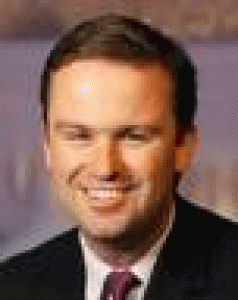



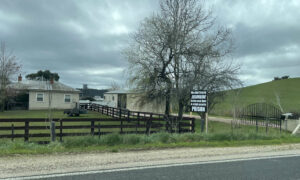



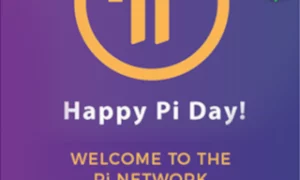



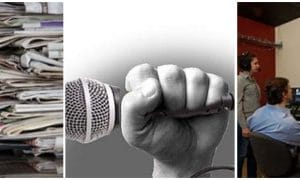



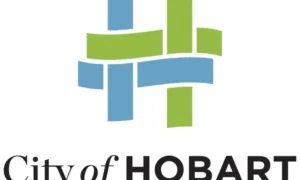



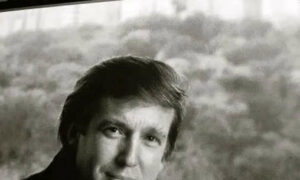





William Boeder
March 7, 2010 at 13:54
That’s how the Lib/Lab coalition get’s things done for the community.
For all those people out their that now understand the ruinous abomination of poker machines, think of the Greens and Andrew Wilkie at the upcoming election.
Tasmania does not need to host the richest families, (or even just one of ’em,) for there will be no thank you’s or betterments given to our citizens.
Concerned Resident
March 7, 2010 at 16:48
If the Lab/lib gov’t are re-elected, you can bet your bottom dollar that they will sell us out to the highest bidders as they have done in the past with Federal and Forestry as major examples.
james Williamson
March 7, 2010 at 16:53
The Greens policy on poker machines seems to be opportunism, a clear strategy to isolate Andrew Wilkie. Their statements haven’t included any method by which “The Deed” can be revoked.Until the Greens state how they plan to withdraw this licence, their promises seem to be vacuous.
salamander
March 7, 2010 at 18:03
After years of a government and “ditto” opposition severely deficient in ethics, Wilkie does make a refreshing change.
He is one who will listen to the people, instead of decide on policy that favours his own interests.
With him and others of like mind, we could have a government that works for the people instead of against them.
john Hayward
March 7, 2010 at 20:02
If someone could sneak through a bill to make parliamentarians subject to Corporations Law, we could jail everyone who voted for this rort, provided you could get the cases out of the state.
John Hayward
Disturbed Voter
March 7, 2010 at 22:35
James Williamson, @#3 above: What you are asking for is laid out in the Greens policy document. See Pg 4 (http://tinyurl.com/yksmueg). There does indeed appear to be a way out of the Deed, and the Greens apparently have legal opinion that such a move is constitutional. While you are waiting for the document to download, you (and others) might want to check out the other Greens policy documents as well: http://mps.tas.greens.org.au
Greg James
March 7, 2010 at 22:47
Which ever way you look at James comments, the most important fact is that both Liberals and Labor have no intention of elliminating gaming. Both parties are on a path of misleading the public about Sovereign Risk, both parties are intent on extending the arrangements with gaming with or without Federal Hotels.
As you can see from this mornings article by Denholm in the Australian, Bartlett has inserted himself into the womb of Federal Hotels and would rather sacrifice his principles (if he ever had any) for Federal Hotels than do good for the people of the State.
It is interesting to note and disheartening to realize that both Liberal and Labor neither have the brains or the inclination to actually eliminate their dependence on gaming through either entrepreneural thought or activity.
james Williamson
March 7, 2010 at 23:27
How do we control the poker machine damage?
Firstly we should look at tobacco packaging, an eqivalent product that has reeked havoc in our health system. Firstly turn off the whizzing bangs and lights and replace them with pictures graphically displaying the effects of playing this machine. Destroyed lives, hungry children, baillifs repossessing houses, angry and frustrated relatives, suicides, and overcrowded prisons And clear written warnings that playing this machine is highly addictive not only to the player but to the people governing them.
When I buy my cigarettes and every time I choose to smoke one I am reminded of the damage that this form of “legitimate entertainment” can cause. As members of the community we should have a say in how dangerous products are marketed?
Abe
March 8, 2010 at 01:32
This article from Mr Boyce summarises the issue very well, but contains a serious anomaly.
The Labor and Liberal Parties are called out by Mr Boyce for allowing the pokies deed to continue until 2018, keeping pokies in the community for eight more years without change.
But Mr Boyce fails to mention that Andrew Wilkie’s policy until 2018 is identical to the policy from Labor and Liberal; Mr Wilkie also wants to leave pokies out there until 2018, eight more years and at least two more elections away.
Mr Boyce’s claim that the Greens pokie-free Tasmania policy, which will phase out and completely remove pokies within five years, somehow “mirrors” Andrew Wilkie’s, is therefore seriously misleading.
Mr Wilkie’s policy will ensure that pokies remain in the community until 2018, just like Labor and Liberal. And that’s a fact, nice bloke or not.
William Boeder
March 8, 2010 at 10:34
9#. The plot thickens with regard to the independent Mr Andrew Wilkie, the story that this independent shares some alliance with the Lib/Lab coalition, will certainly not add to his list of voting supporters.
Thus we must confine our thoughts and wishes for the eradication of this pox of Pokies in our communities, strictly with The Tasmanian Greens alone, as they appear to be the spearhead for such necessary actions.
Ben Peelman
March 8, 2010 at 11:02
The difference between Andrew Wilkie’s pokies policy and that of the political parties’ policies, is that Andrew Wilkie is committed to getting rid of the evil things. While for the parties a pokies policy is either an uncomfortable necessity, or an opportunistic obligation, for Andrew Wilkie simply having made pokies an issue is a success. Getting voted in is not his main game. This is shown in his track-record running against John Howard in Bennelong after the Iraq war. Maxine McKew was only a giant-slayer in that she stood on the shoulders of unacknowledged giants like Wilkie and getup.org.
The difference between Andrew Wilkie’s pokies policy and the greens pokies policy is that the Greens proposal to scrap the deal would seriously dent business confidence in the Tasmanian economy.
Although pokies harm the Tasmanian economy more than prop it up, Federal Hotels’ income from pokies is somehow counted towards state economic activity (even though the Farrells may spend it all on luxury items interstate). Meanwhile the government revenue from a social evil is lacklustre. If Tasmania is to retain poker machines, there should be harm minimisation practices: no pokies in suburban pubs and clubs allowing anybody with a walking frame to find a pokie at almost any time of the day or night; putting competing pokies licences out to tender, in order to maximise government revenue from what is otherwise an upside-down Robin Hood tax; strict guidelines on what government pokies revenue can be spent on, such as Chance on Main and similar projects; or if the major political parties are in Federal Hotels’ pocket to such an extent that they refuse to have an opinion – perhaps a state-wide ban on those electronic cancers is in order!
james Williamson
March 8, 2010 at 12:29
To those above who believe that the Greens will eradicate poker machines in this State prior to 2018 are simply kidding themselves. The licence (Deed) is a closed deal. For the state government to buy the deed back from Federal would bankrupt Tasmania.The Greens best possible outcome at the election is 6. Any legislation to eradicate poker machines would need the support of either of the 2 major parties, which is highly unlikely (which I’m sure the Greens are aware of). My advice to “Abe” and “William” is to give your first preference to Wilkie, then vote Green. Then when Wilkie”s preferences get cut up, your votes will go to the Greens. That way you haven’t wasted your vote and you have sent a strong message via the ballot box about the issue.
Disturbed Voter
March 8, 2010 at 12:31
While I agree with a lot Mr. Peelman (#11) says regarding Andrew Wilkie, I do not understand why the Greens proposal to scrap pokies in Tasmania would undermine business confidence.
If pokies were eliminated from Tassie, the Greens would be in power, since they are the only party advocating such. While voting the Greens into power might be the sensible choice to make on March 20, I doubt most voters would agree. So, although possible, I don’t see that as a probable outcome. Therefore, it is likely that pokies are here to stay, in some form or other, for the foreseeable future.
Let me assume, for a (wonderful) moment, that the Greens are in a position where they can enact their policy on pokies. How is that likely to erode business confidence?
Well, if we are looking at the current situation, where big business has access to government, and government enacts legislation to ‘help’ big business (for whatever reasons), then with the Greens in power big business would lose the access to government that it currently enjoys, thereby reducing confidence that big business can get what they want. So, under this scenario, yes – I see Mr. Peelman’s point.
Is this a bad thing? I would say “no, it is NOT a bad thingâ€. I’m not an economist, but here is my understanding of the problem. Please jump in and tell me where I am wrong – as I surely am!
One of the problems, as I see it, is that Tasmania has a relatively small economy. Past governments have relied on big business to provide jobs and security to the state’s workforce, forgetting that it is small business (most owned locally) that provide the vast majority of employment. This reliance on big business has meant that to keep big business happy the government of the day has had to provide concessions in order to appease the various corporations. These concessions would appear unpalatable to many voters particularly small business owners and operators, so successive governments have had to forgo due process in order to obtain these concessions. Look at the pulp mill fiasco, the canal-style development planned for Lauderdale, ongoing forestry issues, and any of the many issues raised in these pages.
Big business may command big money, but it is small business that greatly outnumbers the ‘big players’. Would small business confidence be eroded by the Greens enacting their promise to rid the state of pokies? I feel that, on the contrary, their confidence would be enhanced. They would surely see a swing toward a more level playing field (metaphorically speaking); a swing to a more conducive environment in which to do business, one in which ALL businesses, big and small, operate under the same regulations.
This could only be a good thing, surely.